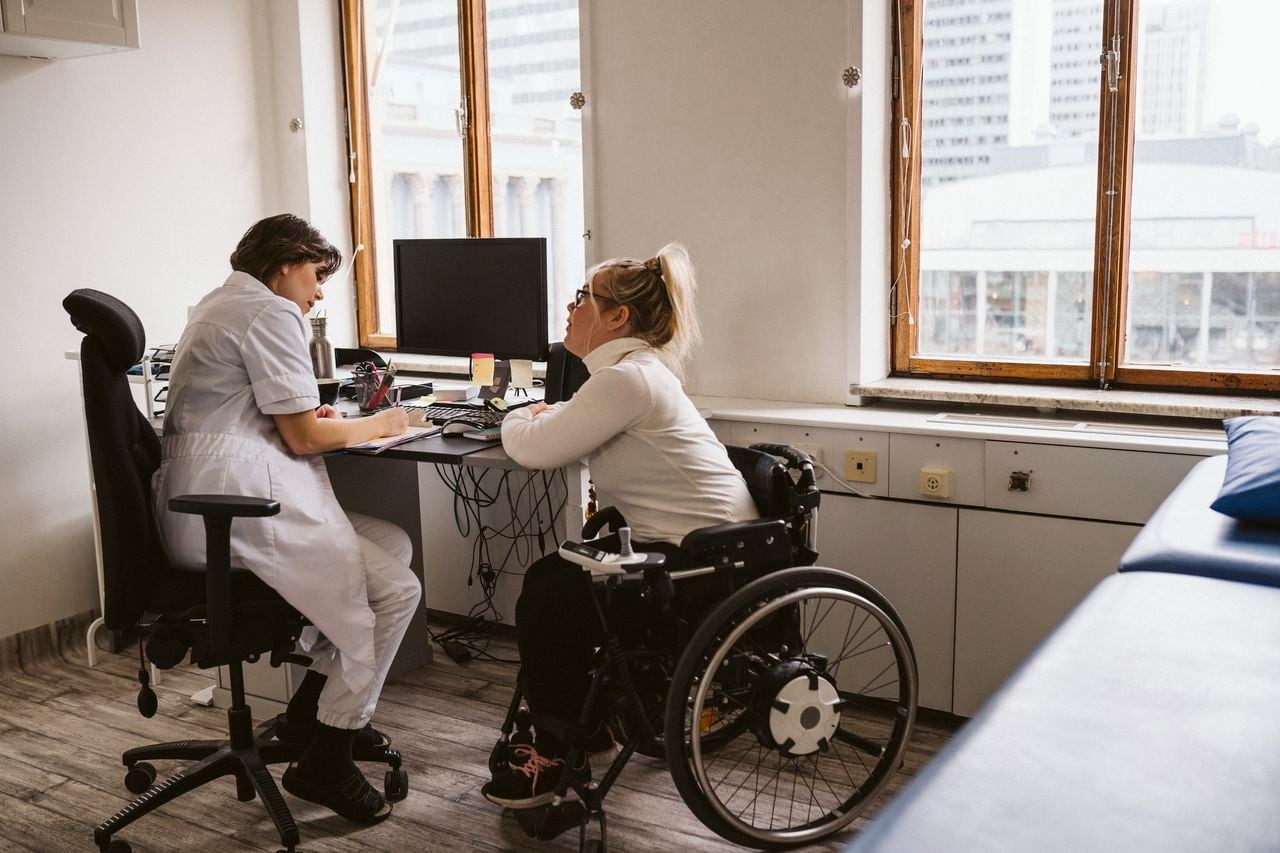People with disabilities face systemic issues in accessing reproductive care
A recently released study highlights the disparities people with disabilities face in accessing reproductive healthcare. According to the report, people with disabilities are less likely to receive gynecological cancer screenings, or consistent prenatal healthcare even though they have similar rates of pregnancy and experience higher risks of poor health and higher risks of gynecological cancer than non-disabled patients.
For pregnant people with disabilities, previous research revealed they face a 48 percent higher risk of mild preeclampsia, 52 percent higher risk of gestational diabetes and 11 times higher risk of maternal death than able-bodied pregnant people.
These health outcomes are exacerbated by barriers to reproductive health services. Those outlined in the study include logistics, cost, privacy and barriers caused by interpersonal relationships. People with multiple disabilities as well as people with disabilities that challenge their ability to communicate or whose disability causes difficulty in activities of daily living, such as showering, getting dressed and eating, are more likely to experience multiple barriers in accessing care.
According to the Pew Research Center, about 42.5 million Americans have a disability, with 7 percent of the population having serious difficulty with walking or climbing stairs and 6 percent having difficulty with living on their own due to physical, mental or emotional issues.
While the Americans with Disabilities Act is meant to ensure that health facilities give equal access to people with disabilities, 2021 research from the Department of Rehabilitation Medicine at the University of Washington showed that this enforcement of civil rights laws to prevent health disparities have largely been ineffective.
Most basic medical equipment is not designed to serve people with disabilities. For example, if an exam table is not adjustable, people with limited mobility may not be able to independently get onto the table.
“Oftentimes that puts them at risk of injury, because staff sometimes aren’t familiar with how to safely transfer them and that also puts staff at risk of injury in terms of trying to transfer people, or it even means that the person doesn’t receive an adequate exam,” said Jillian MacLeod, Reproductive Justice Legal Fellow at Disability Rights Education and Defense Fund (DREDF).
Some people with disabilities require a support person for transportation or decision-making. These interpersonal relationships affect the type of reproductive healthcare services a person can receive, if any at all.
“If their supporters or loved ones who help them with transportation or getting to appointments maybe don’t have the same views as them on what type of reproductive health care they should access, including abortion, then they’re going to have more trouble accessing reproductive health,” said MacLeod.
Five percent of Americans reported having cognitive disabilities, including trouble with memory, concentrating or making decisions, according to the Pew Research Center.
In cases when an adult is not considered mentally able to make important decisions for themselves, a court may enforce a conservatorship, granting another adult, usually a spouse or family member, the authority to make these decisions on their behalf. Britney Spears’ conservatorship, which lasted over a decade, shed light on the potential dangers posed to one’s bodily autonomy when they’re not allowed a say in these choices.
In her 2023 memoir, Spears’ detailed the constraints her conservatorship placed on her reproductive health, stating that she was not allowed to remove her IUD even though she, as an adult, wanted to have a baby with her now ex-husband Sam Asghari.
“What’s especially dangerous about conservatorships is they are typically viewed as harmless, including by courts and judges who impose them routinely. This is part of society’s paternalism and infantilization of people with disabilities. But in fact, conservatorships are a serious and often permanent arrangement,” ACLU Disability Rights Project staff attorney Zoe Brennan-Krohn said in a 2020 interview.
Stigma surrounds disability and sex, with research supporting the notion that society has a misconception that people with disabilities are nonsexual. This causes further barriers, especially for people with a conservatorship or guardianship in place.
“Sometimes guardians don’t think that an adult disabled person should be sexual, they don’t think that they should be having a child. So there can be sort of pressure to not have sex, or to not access birth control, or if you do access birth control to have it be sterilization, rather than something else that’s reversible or more reversible,” said Claudia Center, legal director of DREDF.
Center pointed out one alternative to conservatorship, supported decision-making, in which the person can choose one or two trusted adults on their own to aid their decision-making.
“I would say providers are pretty unfamiliar with the topic and in the same way that they’re unfamiliar, oftentimes, with how to provide appropriate accommodations for people with disabilities because there’s not a lot of training in medical school about providing care to people with disabilities,” said MacLeod.
Claire McNorton, Disability Advocacy & Organizing Program manager of Planned Parenthood Illinois Action, organized the first disability-centered advocacy program in any Planned Parenthood affiliate. She adds that the desexualization of people with disabilities also causes disparities in education.
“Because of that sort of stigma, I do not think that disabled people are receiving the same sex education. So I think starting at that very fundamental level and making sure that disabled students and disabled adults know what their health care needs are, in terms of reproductive health, [is important] to make sure that those services are sought out,” said McNorton.
McNorton says that while self-advocacy is important, it is not the responsibility of people with disabilities to fix these systems:
“That’s on reproductive health providers, that’s on some educators to make sure that access to that information is equitable.”
